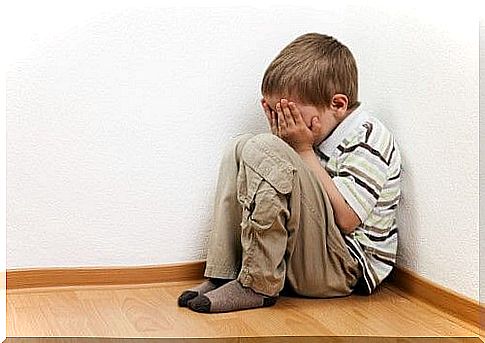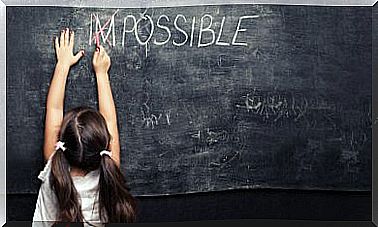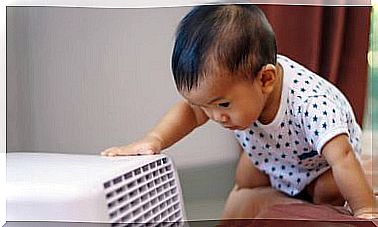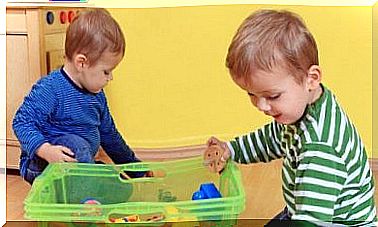School Failure: Causes And Conditions
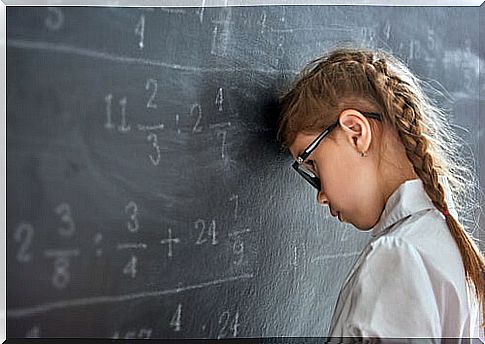
School failure is understood to be the fact of not completing the minimum academic degree for the educational system of which it is a part. It is a phenomenon that occurs at a very high level in several countries. We analyze some causes and influencing factors.
First, it is worth distinguishing the difference between school failure and school dropout or dropout. The first, as we explained previously, means not reaching the minimum required level, while dropout includes those who did achieve it but did not complete Compulsory Secondary Education, as the years of compulsory education are called in Spain.
The term “failure” has been strongly questioned, since it carries the implicit idea that people without the compulsory educational qualification have failed in their lives. In addition, it gives the feeling of placing all the responsibility on the student, when educators, parents and the State also play a vital role in this process.

We will analyze, below, the most important aspects around school failure:
Causes of school failure
- Lack of motivation or disinterest on the part of the student. It is uncommon for it to happen in elementary school students, but it is a reality in cases where parents do not fulfill their role as guides and mentors. Children can easily be tempted by unhealthy distractions if they don’t have someone to show them the way to go.
- Intellectual deficit. Represents a minimum group of students who do not meet the minimum requirements of the educational system. Only 2% of them show deficiencies in their ability to process concepts, operations or other types of data.
- Learning problems. Dyslexia or dyscalculia are common disorders among school-age children and make up a high number of cases of school failure.
- Vision problems. Although it seems strange, vision problems are the source of a high percentage of educational frustrations.
- Family and sociocultural context. The living conditions of a person influence their school or work performance. However, according to UNICEF, this does not imply that the children of parents with higher educational attainment do better. There are studies that contradict this theory.
- Educators’ failures. As in all trades and professions, there are good and bad teachers. The clarity to transmit knowledge, the treatment of the child and the group management of a teacher makes the results of their students better or worse. However, it could be considered as a secondary condition, since it is not enough by itself to cause a person’s school failure.
Conditioning factors
In addition to the causes presented above, there are also other agents that influence the correct development of the educational process.
First, we can consider the emotional conditions that a child develops. This includes interpersonal relationships (with family and peers), emotional balance, and provided support.
Likewise, the way in which educational success is promoted from within the family also influences . As parents, it is necessary to set an example, accompany him at this stage, be empathetic and value his achievements. Children should know that school is not “a waste of time” as we have all thought at one time. Instead, show them how you will help them plan for a better future.
Another lesson that parents must learn is not to measure learning based on test results. School is much more than that: it is learning to live together, socialize, reason and solve problems. We must perceive education as something integral, not as a statistical number.

Ultimately, something that undoubtedly plays a role is the socio-economic conditions in which education occurs. According to the study Inequality: An Analysis of Collective (In) Happiness, by Richard Wilkinson and Kate Pickett, there is a very close relationship between the poverty level of a community and the educational success of its infants.
Statistics of school failure
Although some of these measurements also include those who dropped out of school, there are surveys that are useful to delineate the current panorama.
Studies by official organizations indicate that in Spain school failure reaches 20%, a percentage that only exceeds Portugal. The positive side is that in the last ten years this index has decreased by almost 10%.
Those who follow in the ranking are Malta (19.8%) and Romania (19.1%). Sweden, on the other hand, reflects an enviable 7% in this regard. Croatia (2.8%), Slovenia (5%), Cyprus (5.3%) and Poland (5.3%) travel the same path. We can also cite Italy, Greece, Denmark and France among the countries with the lowest rates.
